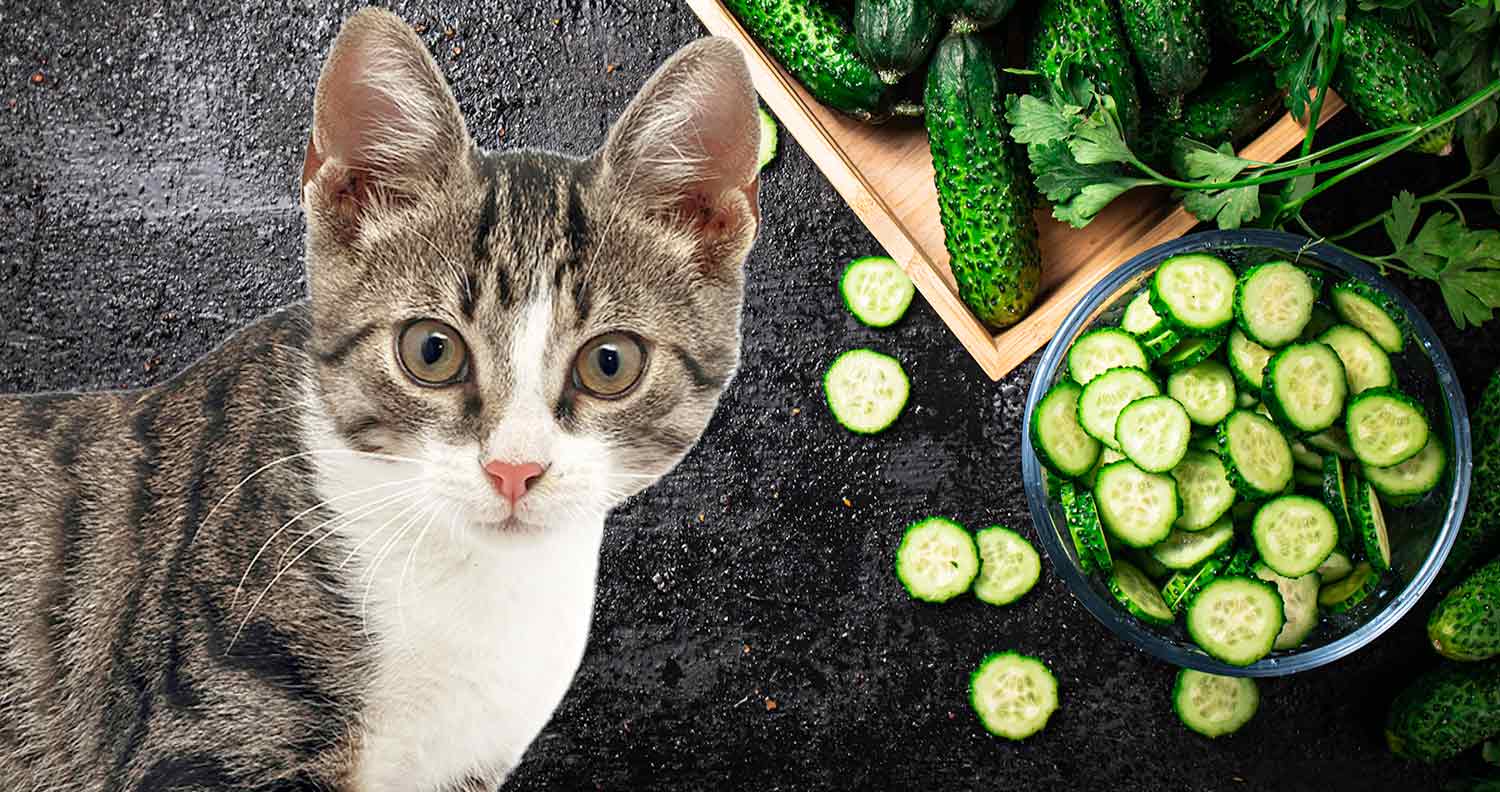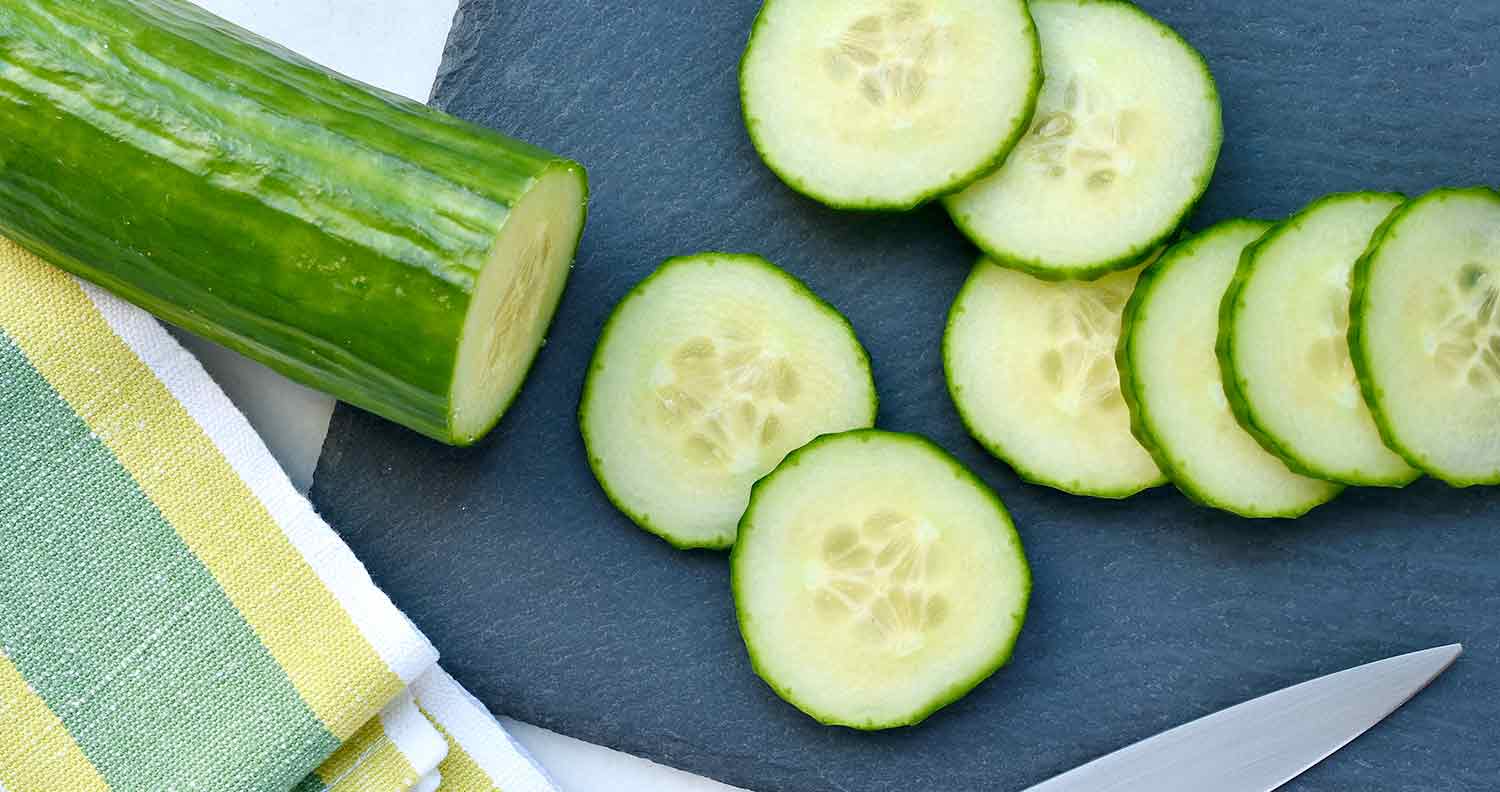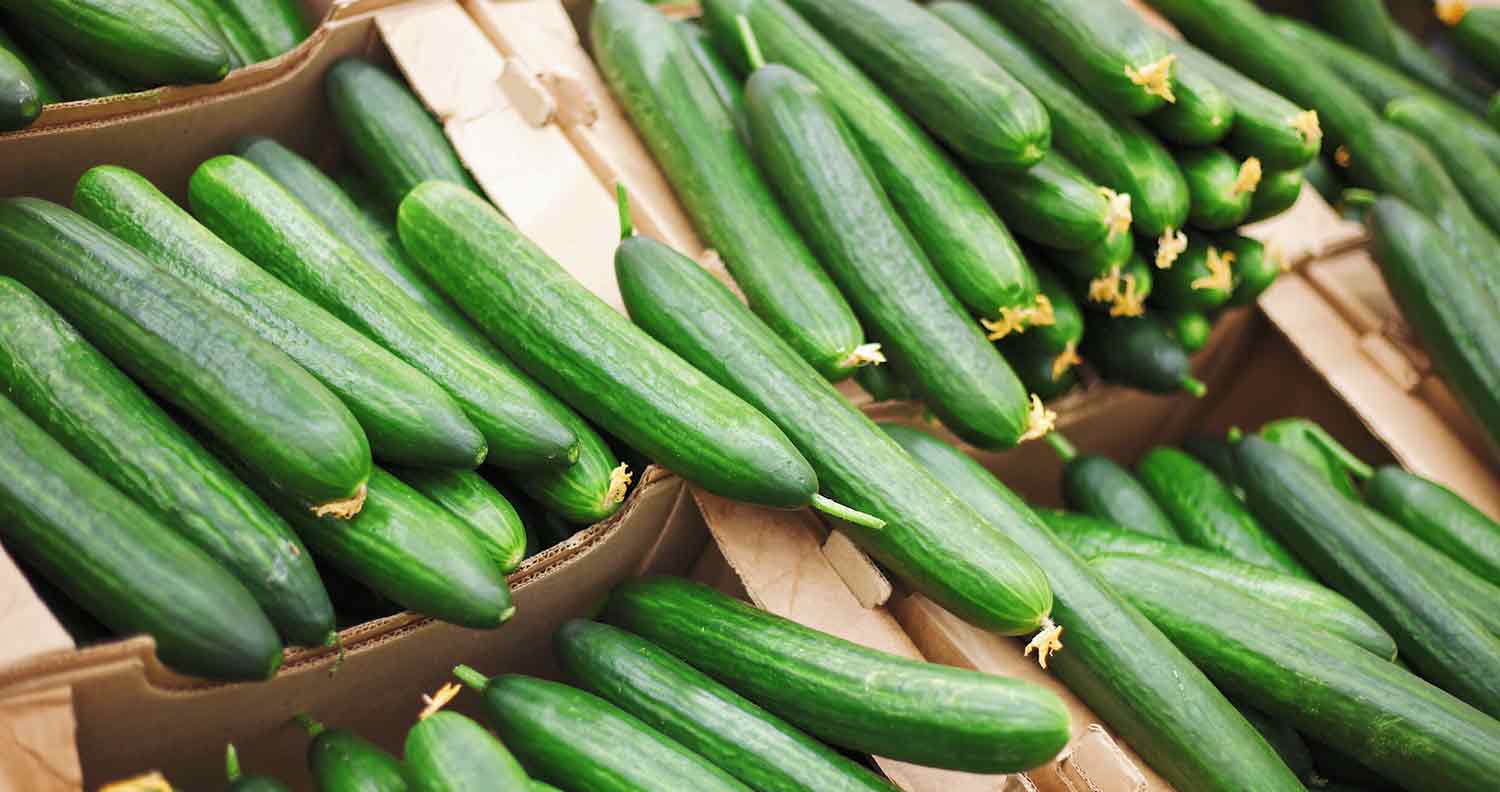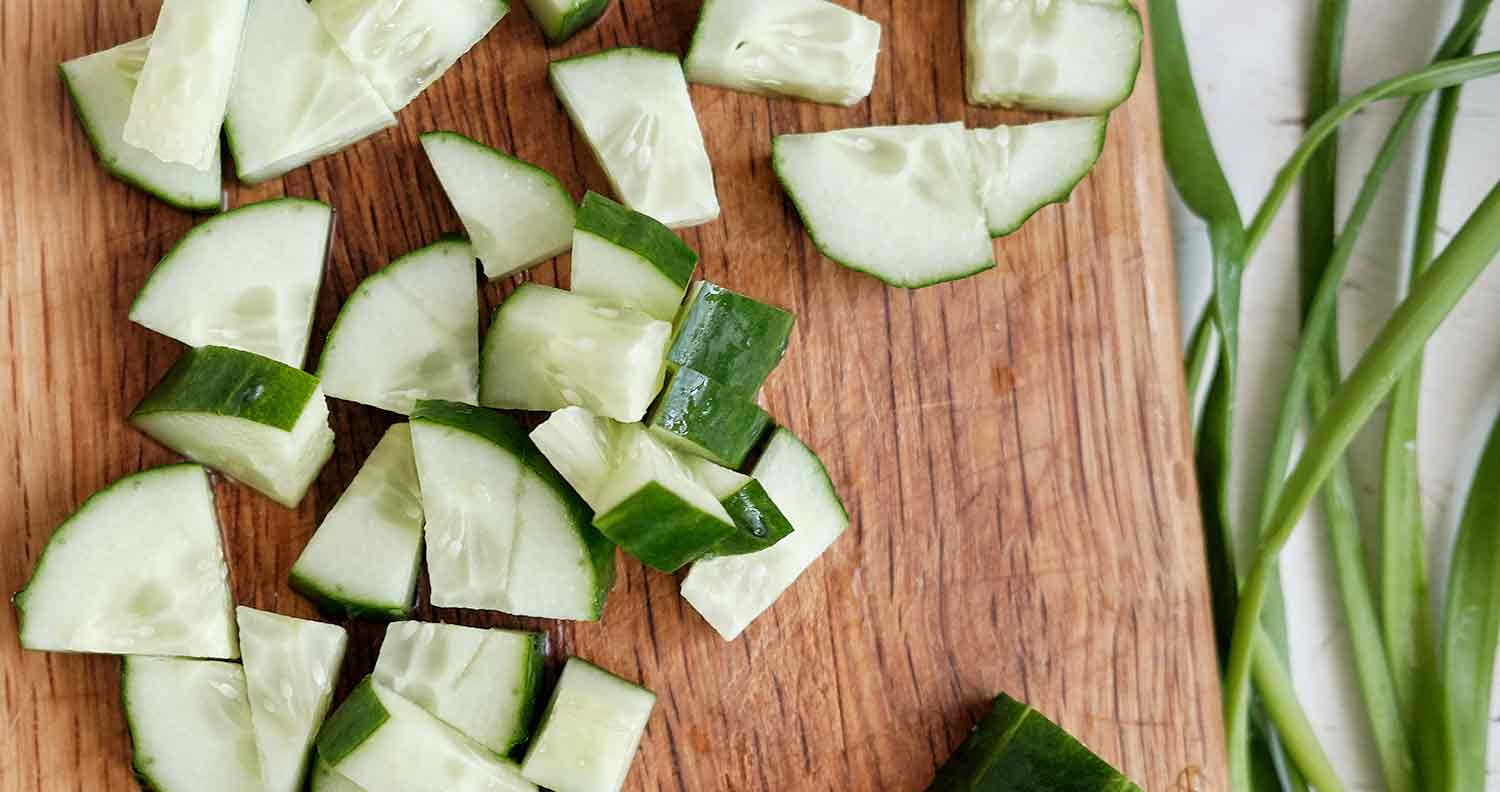Can Cats Eat Cucumbers? (Cats and Cucumbers!)
Share:
So, you're sat down with some slices of cucumber, and now your kitty is begging you for some. Sounds familiar?
Have you ever thought to yourself, can I give my cat cucumber? If your furry feline is anywhere like mine, cucumbers are its favorite snack. But should you let your cat eat cucumber? Let’s find out.

Read this next: Can Cats Eat Potatoes? (Are They Good for Cats?)
Cats and Cucumbers: Do They Mix Well?
Cucumbers are great human foods but are they good for cats?
Few things can be as refreshing and delicious as cucumbers. During scorching summers, cucumbers prevent heat and dehydration in the body.
Also, they are packed with important nutrients.
Interestingly, a cucumber is both a fruit as well as a vegetable. But given its culinary uses, it is commonly regarded as a veggies!
However, since it grows from flowers and contains peel and seeds, it is botanically classified as a fruit.
Cucumbers offer a wide range of benefits - from the beauty industry to medicinal use, they are used everywhere.
Due to their high water content, they are excellent for preventing dehydration and alleviating stomach problems.
A cucumber a day surely keeps heat stroke away! They are helpful to those looking to shed extra pounds and are an essential part of salads all over the world.
Cucumbers can even play a vital role in treating diabetes and cancer too. Cucumbers can also get rid of your dark circles or bloating after a hearty meal.
Considering all the benefits cucumbers give humans, you might wonder if it is as beneficial to felines as well.
Can your cat consume it without getting sick? Is it safe to share your cucumber with your cat without any worry?

Read this next: Can Cats Eat Chicken Bones? (Are Bones Safe for Cats?)
Can Cats Eat Cucumbers Safely?
The good news is that your feline buddies can eat cucumbers too! Cats can consume cucumbers and they do not harm them.
However, moderation is the most important factor when it comes to feeding pets, so you must give it to your cat in measured quantities.
Cucumbers offer several health benefits to cats.
Given their high vitamin, nutrient, and water content, they are good for the overall health of your cat.
Cucumbers are around 95% water, so they are a fantastic way to make sure your furry friend stays hydrated, particularly during the hotter months.
Cucumbers are packed with vitamin K, which can help in cases of blood clotting, so they are good for the liver of your cat.
Aside from vitamins, cucumber is an excellent source of molybdenum, a trace mineral that is crucial for a cat's metabolism.
This wonder vegetable/ fruit also contains magnesium, copper, and potassium, all of which may benefit your cat's health and well-being.
Can Cats Have Cucumber? How Much?
Although cucumbers are not poisonous to cats, their low calorie and sugar content easily allow you to let your cat enjoy a piece or two with every meal.
Cucumbers are good low-calorie food for cats, and a few pieces are enough.
But it is important to remember a few things before giving them to your feline friend.
Firstly, give your cat only the raw cucumber and never the pickled one, since cats find it hard to digest pickles and such foods.
Secondly, whole cucumbers must be peeled because the cucumber skin can be hard for a cat to digest, is covered in pesticides, and can lead to unexpected gut problems.
Thirdly, always give only clean and washed cucumbers. Most vegetables and fruits these days are sprayed with chemicals and fertilizers.
These can be lethal for your pet. So, only a clean and peeled piece will be beneficial for your cat.
And lastly, small quantities only! The thin slices of cucumber must always be small-sized as larger ones can lead to choking and an upset stomach, particularly if your cat has sensitive digestion.
Cats are carnivores by nature, so their digestive systems are specifically designed for the rapid digestion of high-protein that comes from meat.

Are Cucumbers Bad for Cats?
What is good for you may be toxic for your cat.
As cats are obligate carnivores a cat's digestive system is different from that of a human being. Cats are carnivores that get their protein from animal flesh.
They do require fiber, but much less than humans, and get their vitamins, minerals, and other nutrients from meat.
Feeding your cat too much cucumber can be dangerous. Although this vegetable has high water content, some precaution is still needed.
Cats obtain the required nutrients and hydration from their usual diet of wet and dry cat food and water and do not need cucumbers for the same.
If too much of cucumbers are given, it can disturb the bowel movement and digestion of your cat.
Common side effects of consuming too much cucumber in cats include vomiting, aches, irregular motions, diarrhea, and lack of appetite.

Read this next: How Much Should I Feed my Cat? A Simple Cat Feeding Guide
Can Cats Eat Cucumbers: Summary
Cucumbers are good if given as a treat and not as a regular diet. They are not toxic or harmful, yet they are not exactly meant for cats.
Cats are carnivores, and it is important to understand that their dietary requirements differ. Giving small pieces of washed and peeled cucumbers twice a week should be sufficient.
If you’re giving your cat some cucumbers to taste for the first time, always look out for any symptoms that they’re having a poor reaction to the vegetable.
If they show signs of diarrhea or vomiting, it would be best to take them to the vet.
The next time your cat guilts you into sharing that cucumber, just cut it into very small amounts of cucumber treats and give your feline buddy a few small pieces.
This way, the cat will fulfill its cravings while you remain stress-free all day! If they react poorly to cucumbers, avoid giving into their guilt trips and keep them healthy.
Share:

